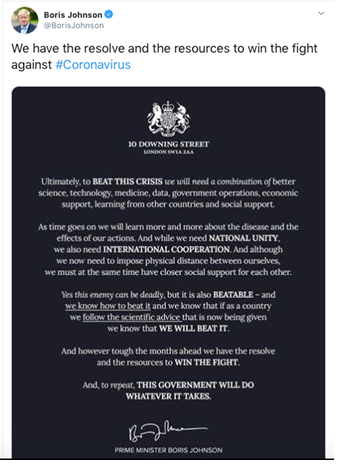by Summer Worsley
Since January I’ve been working on a large project for an in-development machine-learning tool. Because natural language processing is a necessity for any true AI innovation, I’ve been dealing with language data comprised of real phone conversations, collected with the speakers’ full knowledge and consent, of course.
It’s been interesting seeing the shift in conversation topics from January to April. At the outset, the novel coronavirus received very little airtime from participants. By April, it was the predominant topic of conversation for many. Passing references to COVID-19 gave way to full hours devoted to breaking news, and the ongoing impact on the speaker and their nearest and dearest.
While it’s not uncommon for a major event to dominate news cycles and therefore daily conversation, it is rare for a major event to affect the globe simultaneously. This has given rise to an unprecedented spike in new or previously little-used terminology. Suddenly we use terms like PPE (personal protective equipment), social distancing, and self-isolation regularly — often in the same sentence.
What is most striking, perhaps, is the governing metaphor we use to describe and talk about COVID-19 and its impact: pandemic is war.
Healthcare workers are on the front line, we are battling a global pandemic, our body’s own defense system fights the virus, government task forces are formed, the globe is under attack and healthcare systems are in a vulnerable position.
This is exemplified in the following Tweet from UK Prime Minister Boris Johnson. The message is harried, almost fervent. Meanwhile, the mixed use of uppercase text, italics, underlined and bold words along with terminology such as enemy and deadly tap into a Blitz mentality.
I write this from Wellington, New Zealand. Here, our progressive Prime Minister is not immune to a little soft propaganda. We are bombarded with the following messages: Unite against COVID-19 and stay home, save lives, break the chain of transmission. In press briefings, phrases such as stay the course, make sacrifices, our mission, our team of five million, and be kind are put to highly skilled use.
Here, the war metaphor is persistent but softened. If Britain is prepping for another Blitz, we are being encouraged to grow vegetables for our own survival. As a reporter at Stuff points out, “it’s an iron fist dressed up in velvety words.”
While pandemic is war may feel like a natural and fitting metaphor in the current crisis, we should not forget the power metaphors have over discourse.
In 1980, prominent linguist George Lakoff and philosopher Mark Johnson triggered an enduring debate on the power of metaphors in their book ‘Metaphors We Live By’. Lakoff and Johnson argue that metaphors do more than act as linguistic flourishes but actively construct the ways we think. In their view, metaphors are a fundamental element of human speech and by extension, how we act.
“Our ordinary conceptual system, in terms of which we both think and act, is fundamentally metaphorical in nature”
A seminal work, ‘Metaphors’ feels like the right choice these days; Lakoff and Johnson famously start their argument by setting out just how pervasive the argument is war metaphor is. War, it seems, never goes out of linguistic style.
Language choices matter. Framing means the difference between one interpretation and another. In our language choices, we can reinforce one ideology while simultaneously sidelining others, particularly in political or social debates. As a case in point, consider Donald Trump’s “Chinese virus.”
Currently, as Marina Hyde writes for The Guardian, we count ordinary citizens who contract the virus as soldiers, whether the analogy is fitting or not, and it may even do more harm than good.
One objection to militarised language and thinking is that it normalises military intervention. The argument goes that instead of examining the causes of the next conflict, whatever that may be, we automatically adopt a this-is-war mentality and adapt our response in that direction, ignoring the underlying political, social, or economic factors.
Of course, there may be benefits to the war metaphor right now: it engenders a collective response, should be universal instead of polarising, and prompts citizens to follow government advice and recommendations for the community as a whole.
Good or bad, the war metaphor is here to stay. Trying to actively change entrenched public discourse patterns is impossible at the best of times and even more so when other concerns are far more pressing. What will be interesting to watch is whether our war talk persists after the immediate crisis is over.

 RSS Feed
RSS Feed